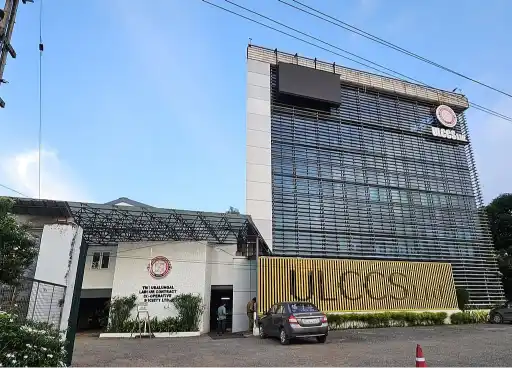The Uralungal Labour Contract Cooperative Society, Kerala’s century-old workers’ collective known for reshaping community development, has been named a Global Cooperative Cultural Heritage Site by the International Co-operative Alliance. The announcement was made at the Itamaraty Palace in Brasília, the landmark home of Brazil’s Ministry of Foreign Affairs designed by Oscar Niemeyer.

This recognition places ULCCS among 31 sites around the world that capture the evolution and spirit of the cooperative movement. India now holds two spots on the inaugural list, with ULCCS joining the Dr Verghese Kurien Museum of Amul in Anand.
A Place on the World Map
The 31 founding sites span 25 countries and include historic centres such as Rochdale in the UK, considered the birthplace of modern cooperation, the Federation of Southern Cooperatives in the US, Moshi Co-operative University in Tanzania, and the ILO Cooperative and Social and Solidarity Economy Unit in Switzerland.
Alongside the announcement came the launch of the world’s first Cooperative Cultural Heritage Platform and Global Map, giving people everywhere an easy way to explore how cooperatives have shaped culture, livelihoods, education and social progress. ULCCS has its own dedicated page, introducing global audiences to its roots in rural Malabar.
ICA President Ariel Guarco said cooperatives carry culture and identity, not just economic activity. Brazilian cooperative leader Márcio Lopes de Freitas described the recognised sites as living classrooms of solidarity, while NCDC Managing Director Pankaj Bansal noted India’s role as a technical partner in building the new platform. UNESCO representatives and senior Brazilian officials, including Ambassador Maria Laura de Rocha, attended the ceremony.
A Century of Worker-Led Progress
Founded in 1925, ULCCS has grown into one of the world’s most influential labour cooperatives. It employs more than 18,000 people and records an annual turnover of ₹2,334 crore. For three straight years, the World Cooperative Monitor ranked it the second-largest cooperative globally in the Industry and Utilities category, a nod to its ethical labour standards and engineering strength.
From building much of Kerala’s key infrastructure to creating UL Cyberpark, the only labour-owned IT park in the world, ULCCS has steadily expanded. Its work now spans technology, education, traditional crafts, agriculture, housing, and disaster management, offering a model of what labour-driven development can look like.
A Movement That Keeps Growing
The ICA’s new heritage programme invites nominations from around the world and is guided by a Charter focused on authenticity, sustainability, community ownership and cultural value. Recognised sites will carry the ICA–CCH Label.
The next major step is planned for 2026, when the ICA introduces the Intangible Cooperative Heritage List, highlighting traditions, practices and knowledge systems that reflect cooperative values.
With ULCCS now officially part of this global heritage map, Kerala’s cooperative story takes its place on the world stage, grounded in solidarity, shaped by workers, and honoured as a cultural legacy that continues to grow.
